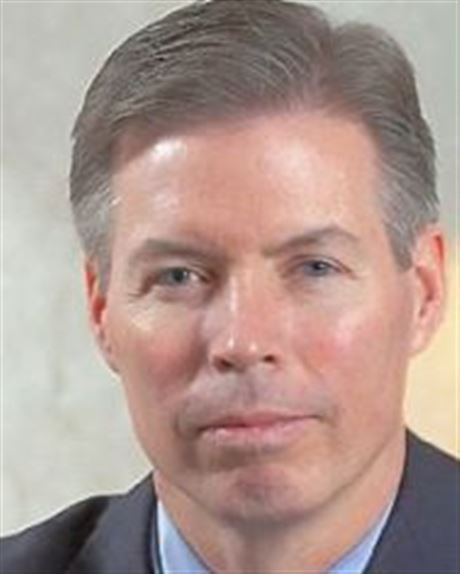Former Allegheny County Councilman Charles McCullough believes his 2015 conviction for theft and misapplication of funds ought to be thrown out. Or, at the very least, that he be granted a full and fair hearing over his allegations of impropriety against the judge who presided over his trial.
His attorney, noted former federal prosecutor and law professor Bruce Antkowiak, told the state Superior Court on Tuesday that the prosecution failed to present sufficient evidence to sustain the conviction and never proved that McCullough intended to steal anything. Instead, he argued, his client was exercising authority granted to him by a power of attorney signed by his elderly, wealthy client.
“Theft by unlawful taking requires proof that the defendant knowingly and unlawfully took control of the property,” Mr. Antkowiak said. “In this case, Charles McCullough’s possession of the property stemmed from a power of attorney she signed.
The criminal case against McCullough, who attended argument but would not comment, dates back more than eight years to when he was originally charged with improperly using a power of attorney he had for Shirley Jordan, an 89-year-old widow.
Following a nonjury trial before Allegheny County Common Pleas Senior Judge Lester G. Nauhaus in mid-2015, prosecutors convicted McCullough of writing more than $40,000 in checks from Ms. Jordan’s accounts for his own benefit.
The checks were written out in the name of political causes McCullough supported, prosecutors said, but not ones that Ms. Jordan would have wanted.
At Tuesday’s argument, Deputy District Attorney Mike Streily told Judges Victor P. Stabile, Jacqueline O. Shogan and Kate Ford Elliott that McCullough had an obligation to use Ms. Jordan’s money in ways she would want.
“He can’t use her money to self-deal or advance his interests or the interest of his family,” he said.
Judge Stabile then asked, “Aren’t you criminalizing every breach of fiduciary duty?”
Mr. Streily disagreed, saying that often such a breach occurs through negligence. With McCullough, he said, it was purposeful.
“He did it to advance his own political career.”
After addressing the issue of the sufficiency of the evidence, the judges turned their attention to McCullough’s request to have Judge Nauhaus recuse himself from sentencing.
On the eve of sentencing in November 2015, McCullough said he learned that Judge Nauhaus had a private, ex-parte conversation with his trial attorney Jon Pushinsky, prior to the start of trial. In that conversation, Judge Nauhaus allegedly told Mr. Pushinsky that McCullough ought to choose to have the case heard by the judge and not a jury.
McCullough claimed in a court petition he had wanted a jury trial but feared repercussions from the judge if he went against his wishes.
McCullough also claimed that Judge Nauhaus told his secretary what the verdict in the case would be — prior to the close of evidence in the case.
Judge Jeffrey A. Manning presided over an evidentiary hearing on that issue shortly after it was raised, but that proceeding ended prematurely when Judge Manning refused to allow Judge Nauhaus to be called as a witness and McCullough refused to waive all attorney-client privilege that would have allowed Mr. Pushinsky to testify about the issue.
Mr. Antokowiak said the hearing never was completed because of "three inexplicably wrong evidentiary rulings by Judge Manning.
"I have no idea why he suddenly forgot the rules of evidence in this one specific hearing," Mr. Antkowiak said.
Ultimately, though, Judge Ford Elliot pointed out, McCullough got what he wanted -—at least in part -—when Judge Nauhaus chose to step aside prior to sentencing because of health reasons. McCullough was instead sentenced by Judge David R. Cashman who ordered him to serve 2½ to five years in prison — a term the defendant has still not begun serving based on his still-pending appeal.
Judge Stabile said that the allegations against Judge Nauhaus, particularly his discussing the verdict with his secretary, are “very troubling.” He questioned whether, if proved to be true, McCullough would be entitled to a new trial. Mr. Antkowiak did not have a clear answer.
“It very well may be that Judge Nauhaus ought to be referred to the conduct board,” Judge Ford Elliott said. But asked later, “Why should we remand when the defendant got exactly what he asked for?”
Mr. Streily, representing the DA’s office, concurred that a full recusal hearing should have been held.
“This goes to the integrity of the entire Allegheny County judiciary,” he said. “The integrity of the judiciary requires this goes back.”
Paula Reed Ward: pward@post-gazette.com, 412-263-2620 or on Twitter: @PaulaReedWard.
First Published: November 28, 2017, 9:47 p.m.

















